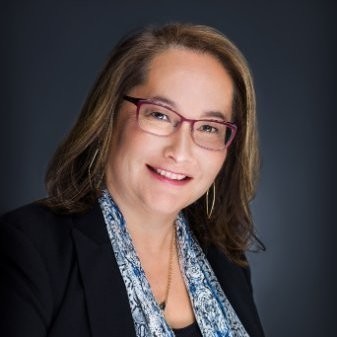
Wanda Seiler is the Senior Director at Alvarez and Marsal, LLC. Check out her LinkedIn profile HERE.
1.Which segment of the industry are you currently involved?
I work primarily in Long Term Services and Supports (LTSS). My areas of emphasis are Medicaid eligibility and Home and Community Based Services. I’ve assisted states with waiver transformation, quality improvement, critical incident reporting, payment transformation, provider billing documentation, shared living, and the development and implementation of software to support human service administration.
2. How many years have you been in the Medicaid industry?
I’ve worked in the industry for over 30 years, including as a policy analyst for a state Medicaid agency, and in leading state behavioral health and developmental disabilities agencies. I’ve been consulting with states for the past 10 years.
3. What is your focus/passion? (Industry related or not)
My passion is developmental disability services and I’m particularly interested in transformative efforts that improve both the efficiency and quality of long term services and supports.
4. What is the top item on your “bucket list?”
I’d like to spend some time in Italy, touring and perhaps taking some cooking lessons to learn the tricks and secrets for preparing great Italian meals.
5. What do you enjoy doing most with your personal time?
Hiking an boating with my two best friends – my husband and my dog, and doing just about anything with my granddaughters.
6. Who is your favorite historical figure and why?
Abraham Lincoln. I think his second inaugural address best illustrates his ability as a leader – to know what to say to unite a nation during a critical juncture in our history. Leadership in never easy, but truly great leaders are distinguished by leading others through difficult times.
7. What is your favorite junk food?
Gabbert’s popcorn – cheese and caramel mix. Is it obvious that I spend a fair amount of time at Chicago O’Hare?
8. Of what accomplishment are you most proud?
Bringing financial stability to a state developmental disability agency that had a significant structural deficit. In a single budget cycle, I was able to correct the deficit and over my eight-year tenure as Director of this agency, eliminate all waiting lists for services. During this time – all service providers achieved and maintained national accreditation demonstrating that efficiency doesn’t have to compromise quality.
9. For what one thing do you wish you could get a mulligan?
When working in state government, I didn’t maximize the use of information technology (IT) solutions. We did a small IT project that yielded significant returns for people and families receiving services. Frankly – I wish I would have done much more of this during my time in state government. Information systems are foundational to the effective administration and delivery of human services.
10. What are the top 1-3 issues that you think will be important in Medicaid during the next 6 months?
- I think states will likely be challenged by Federal audits focused on long term services and supports. State systems struggle to perform LTSS rate setting, billing and claiming creating a significant financial risk to home and community-based services.
- Intellectual/developmental disability services are at a critical juncture. Many state I/DD agencies will begin a slow and difficult transition to managed care. Many will explore value-based purchasing but must first crack the code to determine the outcomes that should be purchased and then how they can be measured.
- With control of the US House of Representatives switching following the mid-term elections, Medicaid should be safe from block grants. It will be interesting to watch the remaining non-expansion states consider their options. Perhaps the most interesting focus will be on the concept of “personal responsibility” in transitioning non-working Medicaid participants to work. It will be an interesting, “chicken or egg” discussion in understanding if people need health insurance to maintain employment or if Medicaid will be the carrot, they need to seek and retain employment. As LTSS tries to navigate through a devastating workforce crisis – every worker will become increasingly important.
